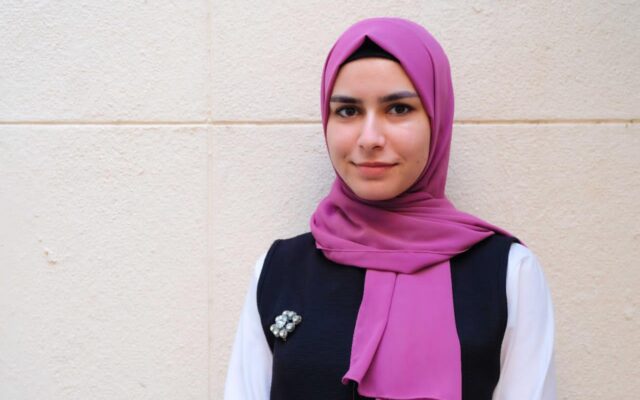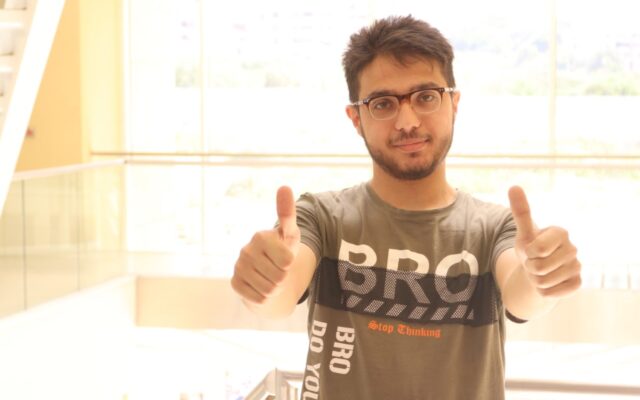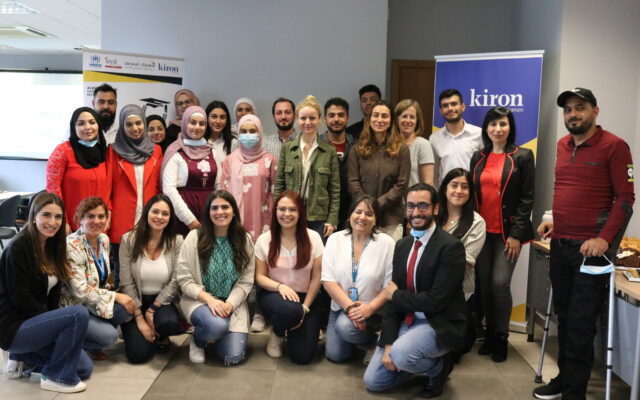Hikma: Unlocking opportunities through education for a brighter future for refugees
08.08.23
© Hikma Pharmaceuticals
Over the last three years, Hikma Pharmaceuticals has been supporting refugee students through UNHCR’s DAFI Programme, a scholarship programme that offers refugees the possibility to earn an undergraduate degree in their country of asylum or home country.
Hikma is currently supporting 40 refugees in pursuing their higher education. Through this programme, refugee students receive comprehensive support for four years, encompassing financial aid for tuition fees and living expenses.
Additionally, students have access to language courses, psychological assistance, academic bridging courses and career-oriented workshops. The programme also facilitates networking, internships and entrepreneurial prospects.
“We’re incredibly proud of our partnership with Hikma Pharmaceuticals. Their unwavering commitment to supporting the future of refugees is making a profound difference in their lives. Education holds the key to a safe and inclusive environment for forcibly displaced people, and it helps them to rebuild their lives and have sustainable employment for their future,” said Emma Cherniavsky, CEO of UK for UNHCR.
Hikma’s support has gone beyond sponsoring scholarships, offering refugees the opportunity to visit their manufacturing facilities and intern at their offices for hands-on training.
Over the last six months, Hikma Pharmaceuticals organised three site visits to its facilities in Jordan, Algeria, and Egypt, providing valuable learning experiences for the DAFI students. They have welcomed 25 refugee scholars to visit their pharmaceutical plant in Egypt, and four others to their facilities in Algeria.
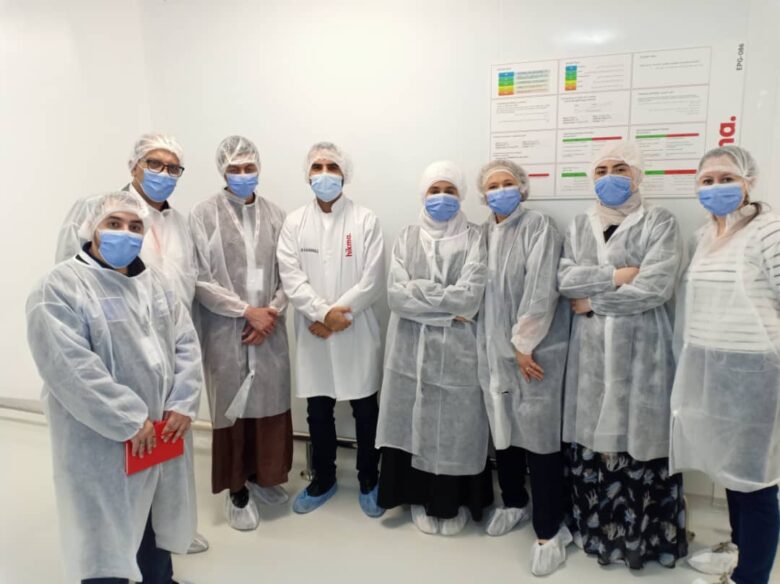
A group of DAFI scholars visited Hikma’s facilities in Algeria.© Hikma Pharmaceuticals
In addition to this, Hikma has provided an internship in their Jordan office for two refugee students. These opportunities help to expand the scholars’ knowledge of the workplace, make new connections within the community and are a crucial stepping stone towards self-reliance and empowerment.
The visit to the pharmaceutical facility in Jordan had a significant impact on Rama, a Syrian Refugee and DAFI alumna, who studied Pharmacy at Yarmouk University, Jordan. It proved to be a transformative experience, expanding her understanding of the pharmaceutical industry:
“My journey to one of Hikma’s manufacturing facilities left me astounded by the exceptional level of organisation and unwavering enthusiasm displayed at every level. It broadened my perspective on the expansive and forward-thinking pharmaceutical industry, presenting an opportunity for personal, pharmaceutical and community growth. It is a space where one can acquire fresh, valuable and practical knowledge.”
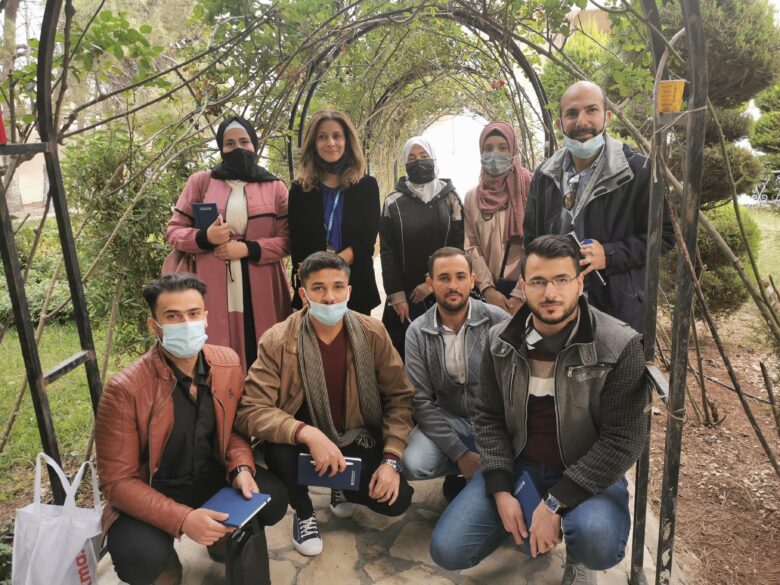
An excursion for UNHCR’s DAFI scholars and alumni to visit Al Hikma Pharmaceutical, offering them a valuable chance to explore the factory’s operations and gain firsthand insights. © Hikma Pharmaceuticals
Last year, Hikma participated in a cycling event with DAFI scholars, covering 8 km in Jordan, commemorating the 30th anniversary of UNHCR’s DAFI Programme.
“Hikma is a firm believer in the power of education, and we are especially pleased to help provide access to higher education opportunities for refugee students. We believe we have a duty towards our communities in advancing health and wellbeing by using our business to promote positive change. Through our education support of refugee students, we are empowering them to build a better and more sustainable future for themselves,” said Hana Darwazeh Ramadan, Global VP of Corporate Social Responsibility at Hikma.
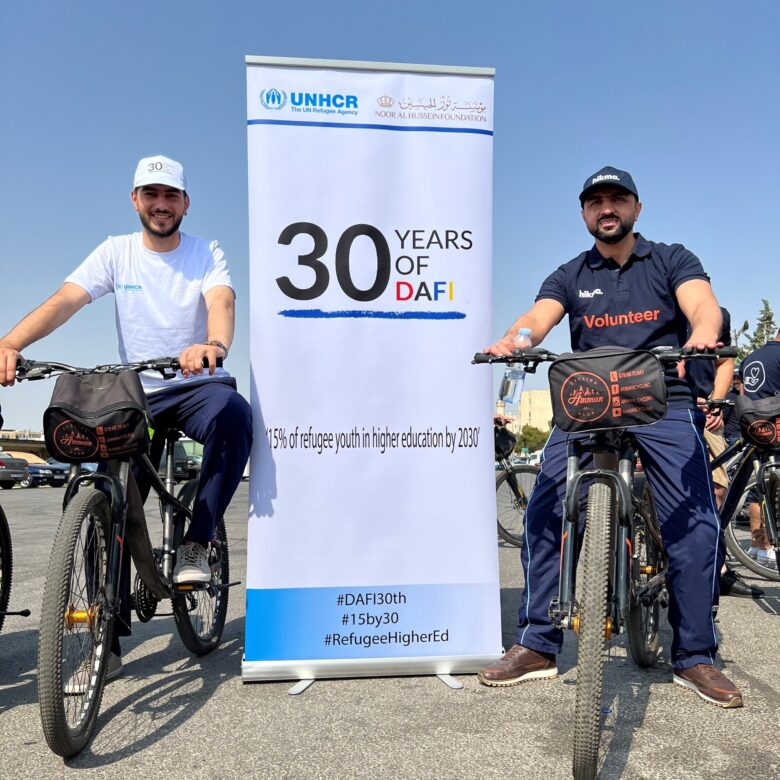
Hikma joins UNHCR UNHCR to celebrate DAFI’s 30 year anniversary. © UNHCR Jordan/Meshal El-Fayez
To further support refugee students, Hikma and UNHCR organised an event that hosted 20 DAFI refugee students and alumni. This inspiring gathering provided these students with a valuable learning experience while encouraging them to pursue their dreams. This event took place at the Samih Darwazah Centre, located within Hikma’s recently established MENA headquarters in Amman, Jordan. The centre’s name pays tribute to Hikma’s late founder, who harboured a profound passion for transforming lives through education.
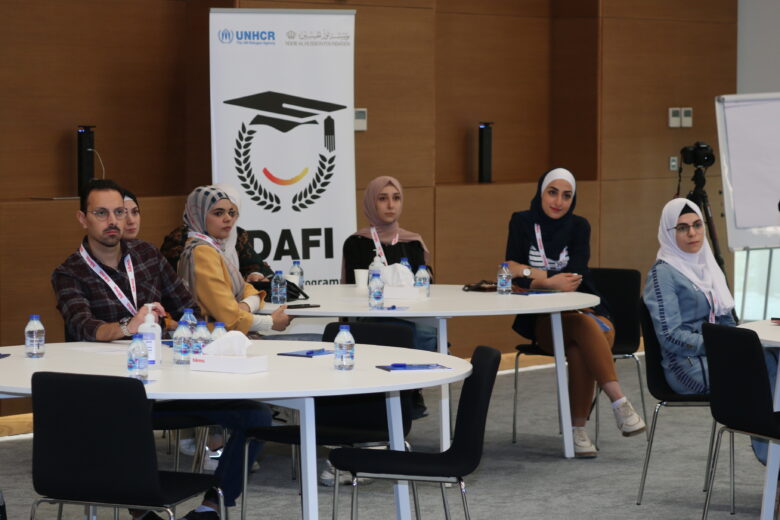
UNHCR’s DAFI students and alumni during the welcome event that Hikma and UNHCR organised in Amman, Jordan.
According to the latest Education Report by UNHCR, there has been an increase in tertiary-level education enrolment. The figures show a doubling from three per cent in 2018/19 to an encouraging six per cent in 2020/21. While this progress is noteworthy, UNHCR aspires to reach an even higher target. By 2030, UNHCR’s goal is to ensure that 15 per cent of young refugees are enrolled in higher education, providing them with enhanced opportunities for a brighter future.


